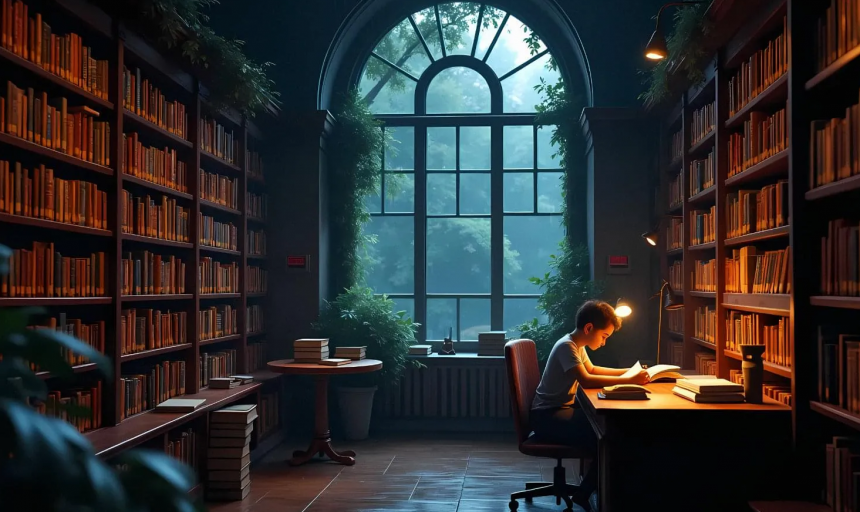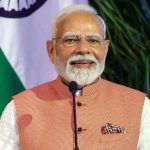With the cacophony of voices around us, opinions drowning us from all sides, and the constant barrage of notifications on our phones, do we still find books relevant? Any form of cultural representation takes its creator some form of imagination and creativity to make meaning.
Books, memes, reels, songs, movies, and paintings are essentially semiotic codes that convey specific meaning/s or even loss of meaning. However, books have always occupied an enduring place among all forms of cultural representation because of the power that the written word carries: “A word after a word/ after a word is power” (Margaret Atwood’s poem “Spelling”).
The written word has forged destinies, toppled power structures, been etched in history, and opened up the world of imagination and creativity for us. Almost every tyrant has been wary of the written word because of the power it carries. Though every form of code, whether it is dress, language, food, art, craft, music, dance, memes, as well as reels, is essential for making up the fabric of our society and enriching life. The written word in any form brings this practice to the foreground.
Writers usually take up the pen and write with an overt intent to unearth, unlearn, and express. Seamus Heaney’s poem “Digging” uses the metaphor of a pen that acts like a spade that unearths. Writing helps in the excavation of ideas–in uncovering, unlayering, unlearning, exploring, constructing, deconstructing, creating, and rewriting. There is no dearth of writing in the present age, but reading as an art as well as a skill has suffered greatly.
The bamboozling availability of online articles, essays, news items and web pages makes the choice even more difficult. Many of us are lost in the plethora of options as we face the paradox of choice. For the coming generations, book reading doesn’t find a conducive environment in homes as well as other spaces we inhabit. The sheer enormity of options, as far as information and entertainment is concerned, has made book reading obsolete.
The Noise
One of the major factors that contribute to a dwindling reading culture is the misappropriation of smartphones. We live in a digital world where an average person receives 85 notifications per day, which means we get to one notification every fifteen minutes. Gen Zs and Millennials get more notifications than their Gen X counterparts (Source: Science Alert).
Each notification sends our brain into a zone to chase the ‘ping’ on our phone. We reach out to our smartphones for fear that we might miss something important. Smartphone addiction is a real thing, and we all are guilty of it, though in degree. Unconsciously checking the phone and even imagining phantom vibrations is not uncommon.
As the mind gets attuned to instant gratification through memes and reels that last even shorter than the movies, the flipping of the pages of a book is a less observed activity than scrolling through phones. In our digital world, pages no longer rustle, and flowers don’t age in books. There are no books with a broken spine, and the pages no longer turn yellow with age. The glare and magnetism of a smartphone make the most tempting book look unattractive for children as well as adults.
The Paradox
There is a grammar of restfulness that is lost in our present age. Book perusal needs commitment and persistence, and our lifestyle isn’t compatible with such persistence. Most of us are rushing to meet deadlines, working to pay the bills, keeping abreast with our social circles, or simply struggling to survive. These commitments need life to be fast paced, and reading needs peace, pace, as well as stillness.
For those who can read a book cover to cover, stillness and peace of mind are the basic prerequisites. Reading is synonymous with placidity, stillness, calmness, and restfulness. It is also synonymous with patience and persistence. It is also a lonely practice, though one can belong to a community of readers. Most of us dislike reading just as we fear being alone. Bearing one’s own company is a mark of strength, and reading entails this kind of solitude.
The constant scrolling down the phone has made digital skimming a common practice rather than intensive and extensive reading. A book, unlike a reel, needs to be visited and revisited again and again in between the intervals. Movies and reels demand far less cognitive patience as compared to book reading. We prefer scrolling through the reels because they don’t cause much burden to our flickering attention spans.
Books need care as well as attention. A book needs tending too: smoothening the dog ears, sewing back the loose pages, or simply mending the spine of a hardcover are rituals that reinforce the fact that books need healing just as we do.
The Detox
Gen Z is increasingly opting for a “digital detox”, which is an intentional period of limited or no usage of smartphones for a given time. Some people who undergo this kind of detox choose a remote location, putting their phones on do-not-disturb mode or choosing to use an old cellular phone in case of an emergency.
Books (or ebook readers), nature, music through cassettes or CDs, games in non-virtual mode, and self-cooking are all major highlights of such a detox. It is an attempt to get in tune with our real world in real time, to listen to the sounds of our natural surroundings, to smell, and to breathe. Digital detox is a way of increasing our mindfulness, where we pause to listen to the rhythm of our own breathing, the movement of our limbs, the batting of our eyelids, the sounds of rain dropping, leaves rustling, and birds chirping.
Immersing oneself in book reading is one of the most effective ways of achieving this detox. Books do not distract us blindingly enough to disconnect us from the world around. Research has proven that reading stimulates those areas of the brain which would otherwise not be stimulated if we don’t read.
The brain is a muscle, and the more experiences it is exposed to through the act of reading, the more agile it becomes. Reading helps in building new and unique neural pathways, thereby enhancing our cognitive abilities. The digital detox is enhanced through book reading as it is one of the most stimulating ways through which time can be spent when alone.
The culture of Reading?
More than a habit, reading is a culture and for any culture to thrive, a conducive and peaceful environment is a must. The actual physical manifestation of reading in the books and spaces where reading is done. Book cafes, community libraries, and reading rooms are spaces that validate reading. Libraries are not only actual spaces where reading can be done, but also symbolic of the fact that reading as an activity has a material dimension.
However, prudence as to what needs to be pursued and what needs to be avoided as far as books are concerned is famously put by Francis Bacon in his essay “Of Studies”: “Some books are to be tasted, others to be swallowed, and some few to be chewed and digested; that is, some books are to be read only in parts; others to be read, but not curiously; and some few are to be read wholly, and with diligence and attention.”
There is no dearth of reasons why we should read. To sum up, the obvious reading helps in expanding our mental horizons, developing critical thinking, increasing our analytical skills, deepening our understanding of things, opening up new ideas and vistas of imagination for us.
Book reading is a deeper and more demanding exercise than receiving snippets of information online. Reading for leisure is as important as intensive reading is. Facts, figures and causality cannot help us to solve all the problems of the world or to know it better or less.
Reading Fiction is quite helpful to enhance our power of imagination, it is like entering into someone else’s dream while awake. Fiction helps us enter into the houses we will never inhabit and makes us privy to minds which are quite different from our own. It helps us to live lives other than our own and enhance an understanding of Life in general. It helps in developing the skills of empathy and curbing individualism. It helps us understand that there are people who operate on a plane different from ours.
Some of the opening lines of work of fiction are memorable because they bring home this point. Consider the opening lines of Leo Tolstoy’s Anna Karenina: “Happy families are all alike; every unhappy family is unhappy in its own way.” For success, multiple factors work in synergy, but for failure, only one factor is enough to bring the entire venture down. This tells us why failure is more common than success.
In order to discover new ideas and arrive at an opinion or a perspective of the world that is uniquely our own, reading books is essential. Book reading helps us to understand that the world in itself is a text and it needs to be read ‘contrapuntally’ as well, which means reading against the grain. Contrapuntal reading, as propounded by Edward Said, is about finding the gaps, breaks, silences, and irony, and reading the subtext as well.
The world in itself is a text, and the child’s wonder when he/she asks questions should never be simply drowned underneath the weight of books. Life is a never-ending book. Mindfulness, observation, introspection, contemplation, and even speculation enhance our quality of life, which is further uplifted through book reading. However, books aren’t there to make us pedantic and boring. It is better to close that book and simply admire the marvel of the world around us, if books make us “bookish”.
(The Author is Assistant Professor and Head Department of English, SMS GDC Hyderpora)










